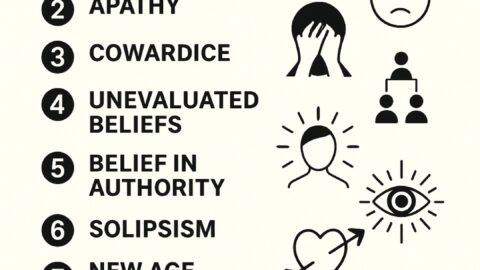Tyrants often employ psychological tricks as tools to manipulate, control, and dominate populations. These tactics exploit human psychology to create fear, compliance, and loyalty, often without the subjects fully realizing they are being manipulated. Here are some of the key psychological tricks used by tyrants:
1. Propaganda and Information Control:
- Repetition and Messaging: Repeating a message frequently makes it more likely to be accepted as truth, even if false. Tyrants use controlled media to bombard the public with their narrative, making alternative viewpoints seem irrelevant or dangerous.
- Selective Information: Controlling what information is released and how it is framed can shape public perception. Tyrants can only highlight certain facts or events and create a distorted reality supporting their agenda.
2. Fear and Intimidation:
- Scapegoating: Tyrants often create or exaggerate external or internal threats, blaming specific groups (such as minorities, political opponents, or foreign powers) for society’s problems. This generates fear and unites the population against a common enemy.
- Creating Crises: Manufactured or exaggerated crises, such as threats of war, terrorism, or economic collapse, are used to justify extraordinary measures. In a state of fear, people are more willing to relinquish freedoms in exchange for perceived security.
3. Divide and Rule:
- Polarization: Tyrants often exacerbate divisions within society—be they racial, religious, political, or economic—to weaken collective resistance. By pitting groups against each other, they prevent unified opposition.
- Distrust: Encouraging suspicion and distrust among citizens, even within communities or families, makes it difficult for people to organize against the regime. This can be achieved through surveillance, informants, and propaganda that sows paranoia.
4. Cult of Personality:
- Glorification of the Leader: Tyrants often elevate themselves to a near-mythical status through propaganda, portraying themselves as the nation’s savior, father figure, or indispensable leader. This can create an emotional bond between the leader and the populace, making it harder to challenge their authority.
- Emotional Manipulation: Tyrants invoke strong emotional responses, such as patriotism, pride, or even love for the leader, using symbols, rituals, and narratives. This can override rational thinking and make people more loyal and less critical.
5. Gaslighting:
- Denial of Reality: Tyrants often deny or distort reality to confuse and disorient the public. Constantly contradicting evidence or rewriting history makes people doubt their own perceptions, weakening their ability to resist.
- Projection: Accusing others of the very crimes or behaviors the tyrant is guilty of creates confusion and deflects blame. This tactic also discredits the opposition by framing them as the true threat.
6. Isolation and Censorship:
- Control of Communication: By restricting or monitoring communication, tyrants prevent the free exchange of ideas and information, making it difficult for the opposition to organize. Censorship also ensures that only the regime’s narrative is heard.
- Social Isolation: Encouraging or enforcing social isolation (through fear, surveillance, or laws) can make people feel alone in their dissent, making them less likely to resist.
7. Normalization of Abuses:
- Gradual Escalation: By slowly increasing the severity of repressive measures, tyrants can acclimate the population to abuses of power. Each new measure, though worse than the last, is presented as a necessary or temporary response to a crisis, and over time, extreme repression becomes normalized.
- Blurring Moral Boundaries: Tyrants may use propaganda to blur the line between right and wrong, making their immoral actions seem justifiable or even virtuous. This creates a moral confusion that weakens ethical opposition.
8. False Dichotomies:
- Us vs. Them: Presenting issues in black-and-white terms, such as “You’re either with us or against us,” simplifies complex issues and pressures people to conform. This reduces critical thinking and marginalizes critics or nuanced views.
- False Choices: Offering limited choices where all options benefit the tyrant gives the illusion of freedom while maintaining control. This can trick people into believing they have agency when their choices are constrained and coerced.
Tyrants use these psychological tricks to manipulate and control populations by exploiting human emotions, cognitive biases, and social dynamics. Understanding these tactics is crucial for recognizing and resisting authoritarian manipulation. Awareness of these tools helps in maintaining a free and informed society capable of defending its democratic republic values and human rights.







